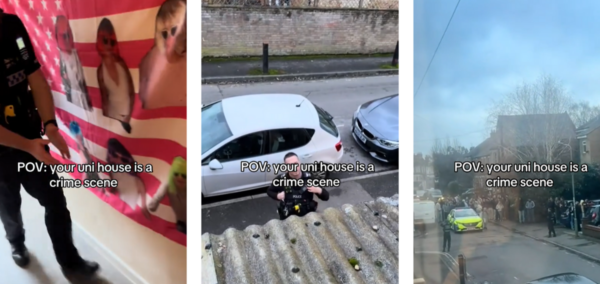
A Taylor Swift deepfake ad for Le Creuset went viral and loads of people fell for it
If it’s too good to be true, it most def is
Taylor Swift was not a part of a Le Creuset kitchenware giveaway, as some Swifties learnt the hard way getting caught up in an Artificial Intelligence-backed scam.
An unconfirmed amount of fans were duped into believing that the 34-year-old was offering her dedicated fans the chance to snag some of the very Instagrammable cast iron cooking equipment via Facebook, according to The New York Times.
The video, featuring an autogenerated image of Taylor, complete with a near-perfect manipulation of her speaking voice, was shared via multiple Facebook pages and was even spotted on TikTok.
A scam ad on Facebook, Instagram, and TikTok claims Taylor Swift is collaborating with Le Creuset, offering free cookware sets. This ad takes you to a fake website that aims to steal personal information and asks you to pay a "delivery fee". pic.twitter.com/DGxIK5gZ44
— Guardio (@GuardioSecurity) January 8, 2024
In the clip, a supposed recreation of her is heard saying: “Hey y’all, it’s Taylor Swift here. Due to a packaging error, we can’t sell 3,000 Le Creuset cookware sets. So I’m giving them away to my loyal fans for free.”
“I got some exciting news to share! I have teamed up with Le Creuset for another epic gift-giveaway,” the caption of the fake Taylor scam reads. “But this time, we’re giving away FREE 20-piece cookware sets.”
Victims were then directed to click a button underneath, leading them to a survey, with an extra urgent reminder that “supplies are running out” from Taylor, a noted fan of the brand. Their $625 Dutch oven made an appearance in her revealing Netflix documentary, Miss Americana and the Heartbreak Prince, and they are often seen dotted around her kitchen, according to Instagram posts.

Most Read
After clicking, people arrived at a website that looked eerily similar to real sites like the Food Network, with professional-looking ads for Le Creuset. They even included fake but real-seeming customer reviews from fake but real-seeming customers. In order to claim their ‘prize’, a “small shipping fee of $9.96” had to be paid via a credit or a debit card. After handing over their card details and failing to receive their wares, that’s when the trouble revealed itself.
No source of the con has been confirmed, but one of the pages operates under the ‘The most profitable shares’.
Maybe Taylor will be the person to finally put the kibosh on the use of this tech https://t.co/Zd8tDKMlKg
— I Am Bad Zina Ellis (@abitoverzellis) January 9, 2024
Dr Siwei Lyu, a computer science professor at the University of Buffalo, told the newspaper that the technology used to recreate Taylor’s voice was “becoming very accessible these days,” hence why the problem was increasing.
“It’s becoming very easy, and that’s why we are seeing more, Dr Lyu continued, explaining that a “decent quality video” like this one could be made within 45 minutes.”
The academic added: “It’s becoming very easy, and that’s why we’re seeing more.”
People are far too dumb to coexist with AI. Some be falling for anything. https://t.co/FQddkn6X0A
— Ken (@kenw_ia) January 9, 2024
AI development and capability have accelerated in the last few years with the rise OpenAI’s ChatGPT, which can generate text and images. Industries, such as the creative arts, have urged for government action with little success. For example, the SAG-AFTRA strikes over the summer were partly fighting for regulation in how people’s likenesses would be used in Hollywood productions. Worryingly, its real-world applications are vast and include revenge porn, elections and ads.
Taylor is not the only celebrity whose image has recently been deployed as a tactic by online fraudsters. Gayle King and Tom Hanks have also had their likeness used similarly for a pet joint supplement and dental plans respectively. Both set the record straight, while Taylor has not made any comment about the situation.
Last April, the Better Business Bureau offered some tips on figuring out the authenticity of something online as the use of deepfakes rises.
“Before you make a purchase, take a minute to reexamine the post and social media account,” the government agency wrote on its website. “The photos and videos are most likely fake. If you make a purchase, you’ll lose money (often more than you expected) on a product that is substandard or doesn’t exist.”
Related stories recommended by this writer:
• Deepfake explained: Everything you need to know about the AI fake media taking over
• Guys, 50 Cent has taken a vow of ‘abstinence’ for 2024 so he can focus
• Selena Gomez loses followers after the Golden Globes while Kylie Jenner gains thousands
Photo credit via Facebook


















